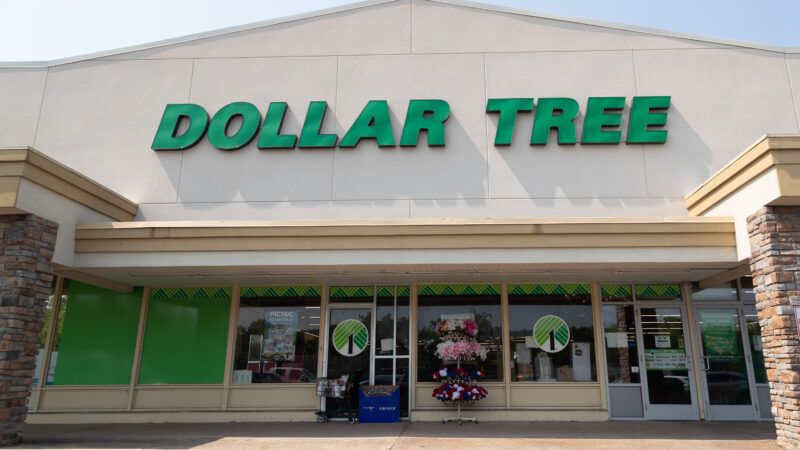In Defense of Dollar Stores
Critics say they ruin communities and peddle cheap goods, but dollar stores thrive because they offer convenience and low prices where options are scarce.

Aside from their millions of customers, it seems everyone loves to hate dollar stores. Critics claim they are akin to a "disease" that reveals the worst of capitalism. Others say dollar stores hurt communities, are a blight to nature, peddle cheap products, and mislead customers into believing their prices are lower than other stores.
Of course, if these accusations were true, it would make one wonder why dollar stores existed in the first place. Do they serve a legitimate purpose, or are they a giant scam?
The answer is straightforward when considered from an economic perspective. Dollar stores exist because they provide customers, especially those in small towns and rural areas, with convenient access to relatively inexpensive household goods at a value that is better than the alternatives. If dollar stores didn't do that, they would go away.
A lot of the items at dollar stores are low-cost, processed food. However, the same is true at major grocery chains like Meijer, Kroger, and Walmart. Many dollar stores also stock fresh food. Research on dollar stores and their impact on food deserts is mixed, but if consumers want fresh food, dollar stores can often provide that.
Critics assume that dollar stores drive away local grocery stores. That is, Dollar General eats the "Smith Family Grocer." While that happens, it isn't really the norm. Why would they open where the competition is better?
Dollar stores often fill gaps in areas with few or no grocery options. Their competition isn't Meijer or Kroger but gas stations like Speedway, Marathon, and Shell.
Dollar stores normally compete with gas station convenience stores that sell household staples, processed foods, and sometimes a little bit of fresh food. Prices are typically higher at convenience stores than at grocery store chains, which is where dollar stores come in. They provide these same goods and a lot more, often at more competitive prices.
It's hard to imagine why people should care if others buy these items at Dollar General or a Speedway gas station. Who exactly is harmed when people living in low-income areas get more convenient access to less expensive goods?
Dozens of towns and cities—including Kansas City—have adopted zoning restrictions to prevent dollar stores from opening. The Institute for Local Self-Reliance, an anti-corporate research and advocacy organization, even has a policy playbook and strategy guide to expand this effort everywhere.
It's possible that dollar stores attract such hate simply because of their high visibility. People who have never set foot in one still see them everywhere. There is also a tendency to make a lot of assumptions about the people who shop at dollar stores—one being that shoppers are helplessly lured in by inexpensive stuff. If dollar stores went away, this thinking goes, its former customers would seek out ways to purchase higher quality goods and foods, maybe improving their health and livelihood.
This is unrealistic. When a Family Dollar shuts down, a Whole Foods doesn't take its place. Taking away options isn't going to make anyone eat more nutritious food.
The backlash against dollar stores echoes the opposition Walmart faced decades ago. When I was a kid, plans for a Walmart in my small town in Illinois sparked an outcry, and people organized to stop it. That fight was repeated around the country, and city after city rezoned to try to keep Walmart and all its convenient and inexpensive goods out.
People said back then that Walmart would take from the local mom-and-pop grocers with short-term low prices and eventually jack up their prices when their competitors were finally all eliminated.
The arguments were dubious, and there was little evidence that Walmart destroyed communities, as often asserted. Walmart's main competitors are not mom-and-pop grocery stores but rather Amazon, Costco, Target, Kroger, etc.
As with dollar stores today, few people cared to know why people wanted to shop at Walmart in the first place. It was mainly because shopping alternatives were less convenient and more expensive.
No one is forced to shop at a dollar store. There is quite a bit of snobbery on display by people who rarely, if ever, shop at dollar stores but criticize those who do, insinuating that dollar store customers are too foolish to know what is good for them.
Dollar stores have spread because they fill a need—offering convenient products at affordable prices in underserved communities. If they didn't, ruthless market forces would have done away with them long ago.


Show Comments (29)